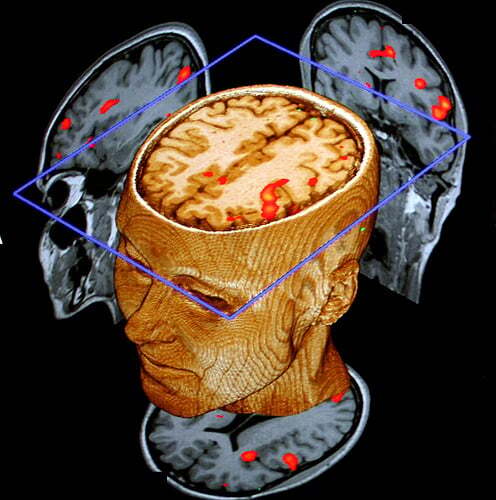No, not talking about their own shit or vomit, har de har. I mean how dogs can’t have chocolate, can’t eat grapes. Are there things it’s no big deal for them but would be toxic for us.
Dogs have a much shorter digestive tract. So things that have been sitting out and have parasites in them have a much smaller chance of making a dog sick than they do humans. This is why dogs can eat most raw meats without getting sick, while humans need special preparation for raw meats to make sure parasites aren’t in them.
This is new information to me and a great example of the internet having a positive role in my life. I wish it was all this way. Thanks for the mini-lesson.
Okay but have you actually looked it up to make sure it’s true? Never trust facts from random comments, no matter how reasonable they seem to be.

…but but but it’s got that air of Truthiness to it.
Truth is in the eye of the beholder
The Beholder: “Ahh! Get it out! Get it out! I got Truth stuck in my eye again! It hurts! The Truth hurts!!”
deleted by creator
Why would they lie? Come one, it’s Tyler! They’d never lie.
Love your comment.
I actually got curious and tried to fact check this but then realized I had no way of knowing which sites really offered actual advice to such an inane little fact, or were just making shit up. :(
This is generally how “folksy wisdom” keeps getting passed down generation to generation until it ends up in a farmer’s almanac.
It sounds reasonable, and so gets taken for true even though it has no (that I’m aware) actual scientific evidence to back it up.
It’s a causation fallacy. ie) correlation does not necessarily equal causation. Just because two things are statistically correlated, doesn’t mean that one causes the other.
It’s like if I were to say “Hey, The midwest has higher instances of heart disease. Therefore moving to the the midwest will give you heart disease.” It’s not true.
The two things are correlated, certainly, in that the mid-west folks probably for the most part has a much fattier diet, and are less likely to engage in healthier eating habits. But just the simple act of being in the midwest isn’t a cause of heart disease.
Correlation does not equal Causation. Print it on a card and keep it in your pocket please. People not grasping that concept and passing off folksy anecdotes as “wisdom” has been the cause of too much suffering.
All true, but it’s even worse: sometimes some of the cited facts are plainly wrong. Taking your example, it could be that the midwest actually has the same heart disease statistics as anywhere else. Just because someone told you something confidently doesn’t mean it’s true. “95% of statistics is made up on the spot”.
So maybe “dogs have a much shorter digestive tract” is already wrong? Maybe they have roughly the same length as us? And maybe “[things with parasites] have a much smaller chance of making a dog sick than they do humans” is also wrong? If you care about the truthfulness, you’d have to look that up too. And then you’d have to find that there’s causation between the two.
But all that said, I agree with another reply: “It’s a really low-risk bit of information, whether true or false. […] there’s no harm in taking in low-stakes stuff”. So no need to be paranoid about every little tidbit of info, just the things that matter to you.
When the stakes are this low and I don’t really care that much, I just move on. Anything that I care about I do like to verify.
It’s a really low-risk bit of information, whether true or false. It’s good practice to be aware of what we accept as true, though there’s no harm in taking in low-stakes stuff imo
I was gonna include that in my reply but didn’t want to make it into an essay.
And put EFFORT into it? Fuck no.
Why look it up when I could just run some tests myself and find out if it’s true
I don’t understand how the length of the digestive tract would have an effect on spoiled raw meat hosting untold amount of bacteria.
There’s a lot more chances to jump off your float for a sec and enjoy the scenery on a long lazy river than there is on a water slide.
This is a beautiful metaphor.
I not sure this is true.
As I understand, humans have an extremely acidic stomach compared to other animals, even carnivores. Our stomach acid is on the level of scavengers, and this is to kill bacteria and parasites in the food we eat. Humans could be more tolerant of spoiled food than most other species.
The modern western diet/lifestyle can damage our digestive tract in ways that affect our pH and microbiome making us susceptible to what we should normally be tolerant of. Anyone taking antacids or dealing with heartburn type issues I would expect to more vulnerable to food poisoning since any pathogens can more easily pass deeper into their digestive tract.
The short digestive tract in a dog is all that is needed to extract nutrients from animal sources, digesting plants requires help from a microbiome and they need somewhere to live and do their work, this is why plant eaters have extensive digestive tracts that are not very acidic so they don’t kill them off. Humans (not sure about other animals) neutralize the “chime” exiting your stomach so that it’s pH is appropriate for the microbiome living in the intestines.
The human digestive tract suggest sit evolved for adaptability, a healthy human can safely eat anything from carrion (not saying it’s fine, just that we evolved to be able to survive it), be a vegetarian, or eat mostly meat and thrive.
Why is this so highly up voted? Is there any data backing this up? This sounds eerily to the 5 second rule… If you pick up up quick enough it’s safe!
I’d really love some sources on this.
It’s a pretty well know property of carnivore digestive systems. They also tend to have more and stronger stomach acid, which also helps with killing parasites. It get’s even crazier for carrion eaters.
My dog often eats raw bones of various animals. Last month he came home with a wild boar skull which has now eaten almost entirely, aside from the teeth and tusks.
Yesterday he caught and ate an entire rabbit. There wasn’t even a single hair left.
These are not things any human I know can do, safely or otherwise.
These are not things any human I know can do
You need better friends.
He has, and he has 4 feet.
You mean there wasn’t a single hare left
dog food. most contains bone meal which can shred the somewhat delicate human digestive tract, but is safe for dogs to eat.
This isn’t true, at least in the US. The vast majority of dog food is safe for human consumption, albeit not recommended.
Some antibiotics, like sulfonamides, can be used in dogs but might cause adverse reactions in humans, such as allergies or severe skin reactions.
might cause adverse reactions in humans, such as allergies or severe skin reactions.
This is true for every antibiotic used on human beings as well. All of them can give you severe skin reactions or you might develop potentially deadly allergies against them. It might be rarer with the ones we use regularly, I don’t know, but it happens.
Old meat. Immune to botulotoxin. May get diarrhea, but if they gobble up some old thing they find, they’ll be more or less fine.
Well that’s how I got thinking about this - they’re not fine to eat some foods which seem innocuous to a human, it could kill them, like grapes. Some commenters here have talked about sort of the condition of food - if it’s old, spoiled, has bacteria or maybe parasites. But I’m curious specifically about food that’s inherently toxic to humans, even in pristine condition, which isn’t to dogs.
I have 51 dogs at home and can’t think of anything. BTW: garlic being toxic to dogs is an old myth, we feed them lots of garlic powder in summer to repel mosquitoes a little.
Garbage?
Raw chicken
The arseholes of other dogs
My new (to me) puppy mill rescue eats her own shit.
They seem to tolerate eating straight up poop just fine. Humans wouldn’t handle that so well.
How can you know? According to the documentary, 2 girls 1 cup, it’s very tolerable for humans.
Omg ’minds me it’s time for dinner
Good job reading the post. /s
I’m fairly certain that wasn’t there when I commented but 🤷
It was. I know my audience
poop











